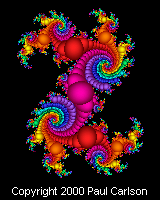 Winter 2009
Winter 2009
RACE & ETHNIC RELATIONS

Course testing at CSUB's WebCT web site: http://webct.csub.edu/
 Winter 2009
Winter 2009

|
Office:
DDH-AA205 Office
Hours: |
Class time: 9:30 am - 11:35 am Tue. & Thurs. Teaching Assistant: Ms. Melanie Hatfield T.A. Office: DDH-AA204 T.A. Office Hours: By appointment only |
TEXTBOOKS & WEB READINGS

COURSE CONTENT

This course is designed to provide students with a broad introduction to the field of race & ethnic relations in the United States. The historical and contemporary experiences of various panethnic groups in the United States -- the so-designated European Americans, Native Americans, African Americans, Latinos or Hispanics, and Asian Americans -- are systematically analyzed based on the Healey textbook. Various sociological concepts are introduced and defined to not just describe but explain the origins and history of the interactions between these groups from colonial times to the present; in short, we attempt to understand the history and contemporary dynamics of modern peoplehood in the United States, as informed by sociological theory.
There has never been, of course, a social consensus on the nature of modern peoplehood, including various theories of nation, race, and ethnicity; there hasn't even been agreement over the factual historical record of racial and ethnic relations in any given country, such as the United States. But there has been prolific writing on these subjects, usually on a country by country approach, which is a flawed approach beacuse modern peoplehood is part of the world's geoculture. We will therefore approach our subject matter in two tracks: on the first one we will focus on the U.S. experience using the main textbook, the Healey book, an excellent example of a scholarly attempt to analyze and explain the historical sociology of race and ethnicity in a single modern country.
The emphasis of the lectures, however, will be placed on looking at the same U.S. experiences with peoplehood but in a global context: how race, ethnicity, & nationhood originated as social categories and their meaning and importance in various periods of the modern world; how these social categories relate to other ones such as modes of labor, the flows of free or forced migrations, the enduring legacies of modern imperialism, the other systems of social stratification (class, gender), the role of the state, the evolving patterns of culture, etc..
Finally, an exploration of various current topics and trends of peoplehood in the United States and worldwide will be pursued independently by each student, via the Annual Editions anthology of articles.
COURSE STRUCTURE

Lectures/Videos/Final Exam:
Dr. Santos will lecture every class. Attendance to these two-hour
classes is
mandatory; absences, tardiness, and early leaving without prior
approval by Dr. Santos will be penalized. From time to time, the class
will watch and discuss a video
documentary. The final exam
(Tuesday, March 17, 9:30 am - 11:30 am) will be
exclusively
based on the lectures & videos; so show up to class and take good
notes!
Activities Based on the Healey Textbook:
The Healey book contains 11 chapters, of which we will cover the first 10. For each chapter covered in the Healey textbook, students will be asked to do two types of assignments: (a) file an email report answering the questions found in the "Current Debates" section found at the end of that chapter -- the email report form is generated from within the course's web site; and (b) take (up to twice) that chapter's test, using the WebCT system at Cal State Bakersfield.
The Annual Editions (AE) anthology of articles contains 53 articles organized in 10 "Units." Each week a Unit will be assigned and each student needs to (a) freely choose two articles from that Unit to read and (b) take a quiz on each of those two articles. The deadline for each week's AE 2-quiz assignment is also the Sunday midnight at the end of the week it was assigned. The quizzes are very short and multiple-choice. You have 15 minutes to complete each, in any order you wish. Note that you may not take a second quiz on any given AE article. (NOTE: If you wish you may read & quiz on as many extra articles within an assigned unit as you wish, so long as you take these extra quizzes before the assigned Unit's Sunday deadline. Any previous low scores will not be erased, but you may be able to improve your average score a little.)
To access and take an AE article quiz, do the same thing as before with the Healey chapter tests: click the frame button "Tests & Quizzes" to your left of the syllabus in Dr. Santos' website, or go here: http://webct.csub.edu/.
Instructions on Taking Quizzes and Tests at CSUB's WebCT:To gain access: go to the CSUB WebCT site: click and bookmark the following URL address:
If you are doing it from an off campus computer, make sure your browser is properly configured (click around WebCT support links and read how you can ensure your browser is properly configured).
You will need to know your WebCT ID and password. All CSUB enrolled students have a "Runner" email account. Your WebCT ID is the same as your Runner Mail Logon ID -- that is, whatever prefix goes before the "@runner.csub.edu" domain. For example, the WebCT ID for John Smith (jsmith4@runner.csub.edu) would be jsmith4. Your initial WebCT password is the last five digits of your CSUB ID Number. Once logged on to WebCT, you will be asked to change it immediately (if you have used WebCT before you'll need to enter your old password). Choose an easy to remember, easy to type new password. We also suggest that you set up your login hint immediately - and write all these codes somewhere where you will not loose them, nor expose them to theft by others.
If you need help: For any WebCT-related problem, call Student Technology Help Desk at (661) 654-2315; any other computer related problem, such as if you don't know your CSUB RunnerMail Logon ID, or if you've changed your password and have forgotten it, call (661) 654-2307.
Be
prepared!
The maximum duration for each chapter
test is 60
minutes; for an AE quiz it's 15 minutes. After
each weekly deadline, access to any given chapter test will be closed
and no late testing will be possible. So make sure you have prepared
well, chosen a day, time & place well, and have ample time and
tranquility (with no
distractions) to begin testing; take time to read carefully
each question before you answer it - do not rush! (a common
mistake). You may take the test with the open book, but exclusively on
your own, please. Never plan to take a test in two or more
sittings; plan always to take
each test in a single session
(the computer usually freezes incomplete tests).
Save your answers every time. If you change your mind on a specific answer, don't forget to save it again! And don't forget to send your quiz/test to grade when you are done (lots of students forget this last step and their scores are not computed).
Security precaution: If you are using a public computer, always quit both the WebCT site and the browser (Netscape or Explorer) after you are done with testing -- otherwise, someone may access your own WebCT account and "try out" some tests! This is because your access codes stay active until you quit the browser. And remember, never share your testing access codes with anyone!
The Healey chapter tests
are worth 50 percent
of the final grade (5 points per test). The Healey chapter
debate
reports are worth 10
percent (1 point per report). The
Annual
Editions article quizzes are
worth 20 percent (~2 points
per
quiz). The final exam is
worth 20 percent. The final
letter grade will be assigned, on a total percentage scale of
0
to 100, as follows:
| 94-100 = A | 87-89 = B+ | 77-79 = C+ | 65-69 = D |
| 90-93 = A- | 84-86 = B | 74-76 = C | < 65 = F |
| 80-83 = B- | 70-73 = C- |
Dr. Santos will generally be available at his office, DDH-AA205,
from 9:00 to 10:00 am, MWF.
Students are encouraged
to come see him or to call (664-2191) during these times. Please be
advised, though, given the huge
volume
of incoming email reports, that email communication has to be very brief and
to
the point. Clearly identify your business in the subject heading,
always write from your "official
email address", not from two or three different email addresses, and
make sure to sign
off with your
full
name.
Your T.A., Ms. Melanie Hatfield, will be available to tutor you or
meet with you
by appointment only, at her office, DDH-AA204. She will be in charge of
evaluating the email reports and handling email traffic. You may
contact her by email at Dr. Santos' email address, or directly at her
email address (see above). Again, be brief and to the point, and expect
a brief
reply, too. If you wish to set up an appointment, you should leave her
a phone she can reach you - and always sign off with your full name.
Web
page frame buttons to the left of this syllabus:
|
|
|
|
| January
8 |
Introduction to the
Course (no readings) |
- |
| 1
|
|
|
| 2
|
|
|
| 3
|
|
|
| 4
|
|
|
| 5
|
|
|
| 6
|
|
|
| 7
|
|
|
| 8
|
8: Hispanic Americans: Colonization, Immigration, and Ethnic Enclaves |
|
| 9
|
10: New Americans: Assimilation & Old Challenges |
|
| 10
|
|
|